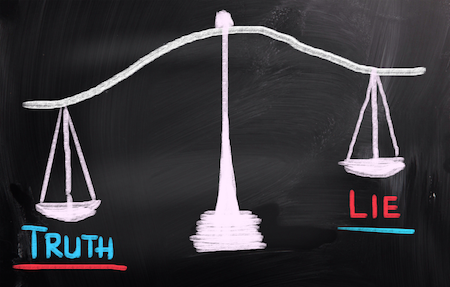 Every relationship has its share of conflicts; it’s no secret that it’s how those conflicts are handled that matters most. Now new research published in the Journal of Personality and Social Psychology suggests that simply feeling understood can mitigate conflict’s impact – and even enable conflict to improve relationships. Amie Gordon and Serena Chen of the University of California San Francisco conducted a study in which participants wrote about a specific conflict that had occurred in their current relationship. People reported a lower degree of satisfaction—if, and only if, they were asked to consider a conflict where their partner didn’t understand them. This suggests that conflict needn’t be harmful to a relationship if it occurs in the context of feeling understood. A diary study over a two week period also showed the positive effects of feeling understood (this time measured by items like: "Today, how much do you think your partner was able to accurately understand what you were thinking and feeling?"). As participants went about their lives, conflicts accompanied by feeling understood by one’s partner didn't appear to lower people’s satisfaction with the relationship. This confirms our own research: Regardless of whether we get exactly what we want, our relationships can survive—even thrive—in the face of conflict. When arguing with your partner or work associate, try asking clarifying questions and requesting specific examples of what they are upset about. This can help you understand them and help them feel understood. We want to hear. How do you and people at work and in your personal life attempt to make one another feel understood, even in conflict? To join the conversation, click "comments" on our Community of Practice Forum. If you would like to read more about creating a habit around masterful communication, check out our book: Be Quiet, Be Heard: The Paradox of Persuasion.
0 Comments
 Do I look fat in these pants? If someone you care about asks and you say “No”—even if you don’t find the pants especially flattering to their figure, would you call this a justifiable lie? If you did, you would not be alone. As much as we decry lying, most of us tell a certain number of lies we consider to be permissible. Writing in The New York Times Gerald Dworkin, distinguished professor of philosophy, emeritus at University of California, Davis posits that, ”we could not lead our lives if we never told lies — or that if we could it would be a much worse life.” Dworkin lists ten examples of lies he believe to be either permissible, or, in some cases, obligatory, and invites readers to weigh in. His scenarios include:
While aware that not everyone will agree that all the lies he deems permissible are in fact so, Dworkin’s larger point is that—even though “it is usually a bad thing for people to come to believe false things”—the range of permissible lies is broader than we might have considered. We want to hear. Can you give examples of types of lies you consider to be permissible, even beneficial? To join the conversation, click "comments" on our Community of Practice Forum. If you would like to read more about creating a habit around masterful communication, check out our book: Be Quiet, Be Heard: The Paradox of Persuasion.  Do you ever feel awkward in new situations? Success inevitably requires exposure to new settings—new jobs and transfers, new client meetings, and new peers. Yet Keith Rollag, Associate Professor of leadership and organizational behavior at Babson College, and author of the forthcoming book, What to Do When You’re New, contends that many professionals do less than their best because they haven’t mastered three basic yet essential skills: introducing themselves, remembering people’s names, and asking questions. “Through interviews, surveys, and studies with hundreds of people, I’ve found that the anxiety most of us feel in new situations is rooted in these three activities,” writes Rollag in The Harvard Business Review. Rollag offers a variety of tips to improve these skills. Among our favorites:
Getting comfortable in new situations involves a degree of risk tolerance and also overcoming old habits. The more consciously we practice these skills, the more likely we will become comfortable, confident, communicative newcomers. We want to hear. What skills have you successfully employed to put yourself and others at ease in new situations? To join the conversation, click "comments" on our Community of Practice Forum. If you would like to read more about creating a habit around masterful communication, check out our book: Be Quiet, Be Heard: The Paradox of Persuasion.  When your mom said,” Stop slouching!” she never envisioned how hard it might be for you to comply once you got a smartphone. Technology is transforming our posture into what New Zealand physiotherapist Steve August calls the iHunch. And according to Harvard Business School professor Amy Cuddy, author of Presence: Bringing Your Boldest Self to Your Biggest Challenges, this way of holding ourselves is detrimental to our moods and behaviors. Last year we wrote about Cuddy’s research showing that striking expansive “power poses” prior to events like job interviews and presentations could boost confidence. Unfortunately, slouching has the opposite effect. Cuddy’s preliminary research suggests the collapsed position we assume when checking our phones makes us less assertive — less likely to stand up for ourselves when the situation requires it. There actually appears to be a direct relationship between the size of our devices and the extent to which they affect us: the smaller the device, the more we contract ourselves to use it, and the more inward our posture, the more submissive we’re likely to become. Bottom line: Your mom was right! Keep your head up and shoulders back. Need to check your phone? Hold it at eye level. We want to hear. Are you aware of slouching when you use your phone? What happens to your mood and demeanor when you consciously alter your posture? To join the conversation, click "comments" on our Community of Practice Forum. If you would like to read more about creating a habit around masterful communication, check out our book: Be Quiet, Be Heard: The Paradox of Persuasion. |
Archives
July 2024
Categories
All
|
|
Glaser & Associates, Inc.
Executive Offices 1740 Craigmont Avenue, Eugene, OR 97405 541-343-7575 | 800-980-0321 [email protected] |
© 2019 Glaser & Associates. All Rights Reserved.


 RSS Feed
RSS Feed